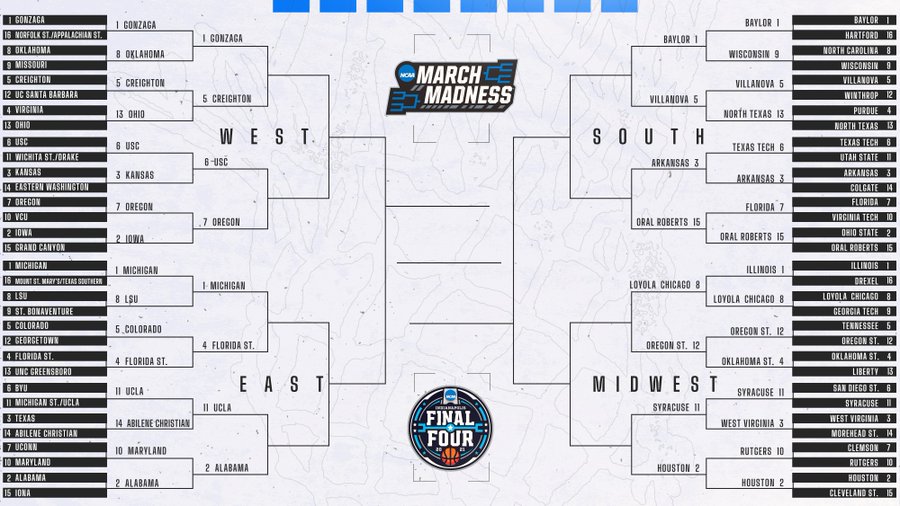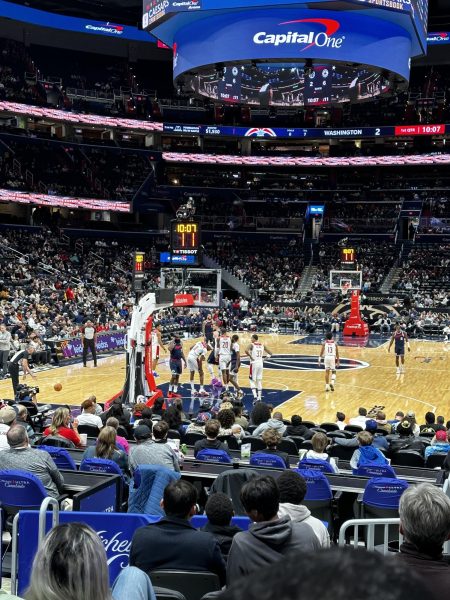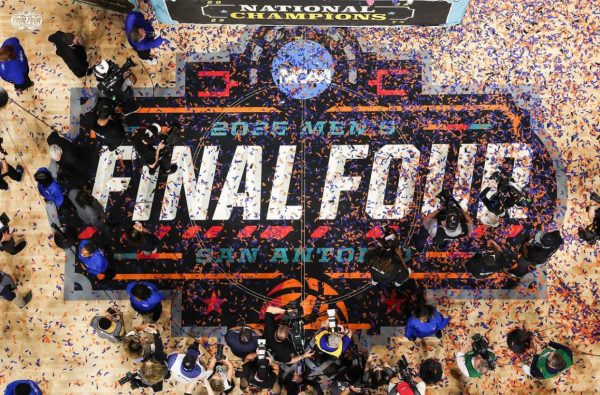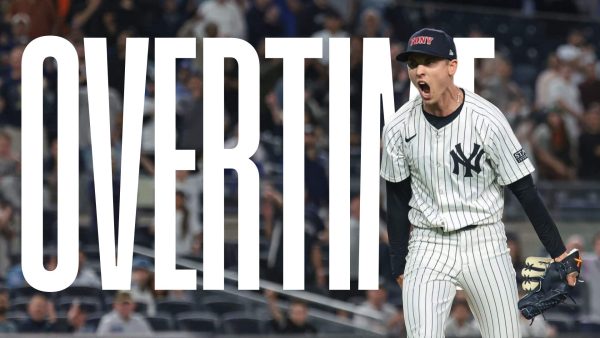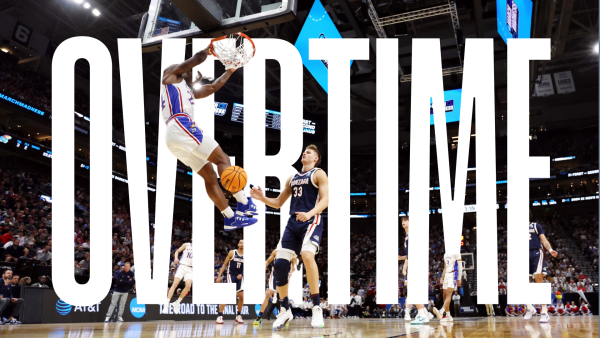Overtime: What Does a March Madness Upset Even Mean Anymore?
How easy it is to write about March Madness right now. This year’s tournament has simply been madness. A number of underdogs — Oral Roberts, Syracuse, Loyola Chicago, Oregon State and nearly even Rutgers — booked their spots in the Sweet 16 as just a few of the many surprises up the tournament’s sleeve thus far.
Yet are these really even surprises anymore? Looking at this season, many of the traditional “Blue Blood” programs in the likes of Duke, Kentucky and Michigan State are either absent or already bounced from the Tournament. It seems that each year we get an increase of “upsets,” but are somehow still surprised by them.
Let’s start with Oral Roberts. At 24.5 points per game, sophomore Max Abmas is not just the leading scorer for the Golden Eagles, but across the entire nation. It can be dangerous to rely on just one player that heavily, but when he scores 30 and 28 in the tournament’s first two games, the outcome should not come as a surprise.
As for Syracuse, they entered the tournament as an 11 seed, but that means nothing more than a number when it comes time to play. The Orange have been heading downward in the past few seasons, but let’s not forget the storied success of head coach Jim Boeheim, with a Tournament trophy in five Final Four appearances, one as recently as 2016.
Everyone knows the story of Sister Jean and Loyola Chicago. Back in 2018, the 11th-seeded Ramblers advanced all the way to the Final Four where they ultimately fell to Michigan. Although it has been a few years, there is no reason to expect anything different this time around. Especially when this year’s time is nearly statistically identical to the one from three seasons ago in many significant categories.
Those are just a few of the examples of the signs that these lower-seeded teams have all the makings for a deep Tournament run. At the same time, those at the top are expectedly inconsistent as well.
Although Illinois has been good this season at 24-7 and deserved a number one seed, this is their first time on the big stage. And while they ended the year on an incredible run, knocking off the likes of Iowa, Ohio State, Michigan and Wisconsin in a loaded Big Ten, Illinois simply did not seem up to the task of competing with a much more prepared Ramblers team.
History tells you everything you need to know about Bob Huggins’ West Virginia Mountaineers. They routinely deliver in the regular season but come up short when it matters most. And with Oklahoma State, knocked off in convincing fashion by the Beavers, it is difficult to win consistently on the back of just one player. When Cade Cunnigham shoots 6-20, the result is a predictable one.
All of this is to say that we should expand our definition of upset beyond the seeding alone. My bracket is surely as busted as many others out there, but I’m not too surprised by the results we have seen so far. To put things in perspective, there have been between 10 and 16 upsets in 28 of the last 35 NCAA Tournaments. That consists of an average of six in the first round and 3.6 in the second, so let’s call it four.
With an upset defined as an at least two-seed difference, this year we saw nine in the first round and another six in the second.
Part of that proficiency certainly leans toward the impact of COVID-19, as each team has been subject to wildly different conditions, protocols and health situations over the course of the season to generate the seeds entering the tournament. It is difficult to find an even playing field, and a team like Virginia was not helped by its struggles with the virus heading into March.
But things are now in a bubble in Indianapolis. There is no home-field advantage or excuses, just basketball. Thus far, the lower seeds have come to play, and we should continue to expect more of the same. Maybe it is time to change our definition of what an “upset” really is.

Alexander Wolz is a sophomore majoring in communication and culture. He went from writing to assisting and will now be Sports Editing. He also loves video...



































































































































































































